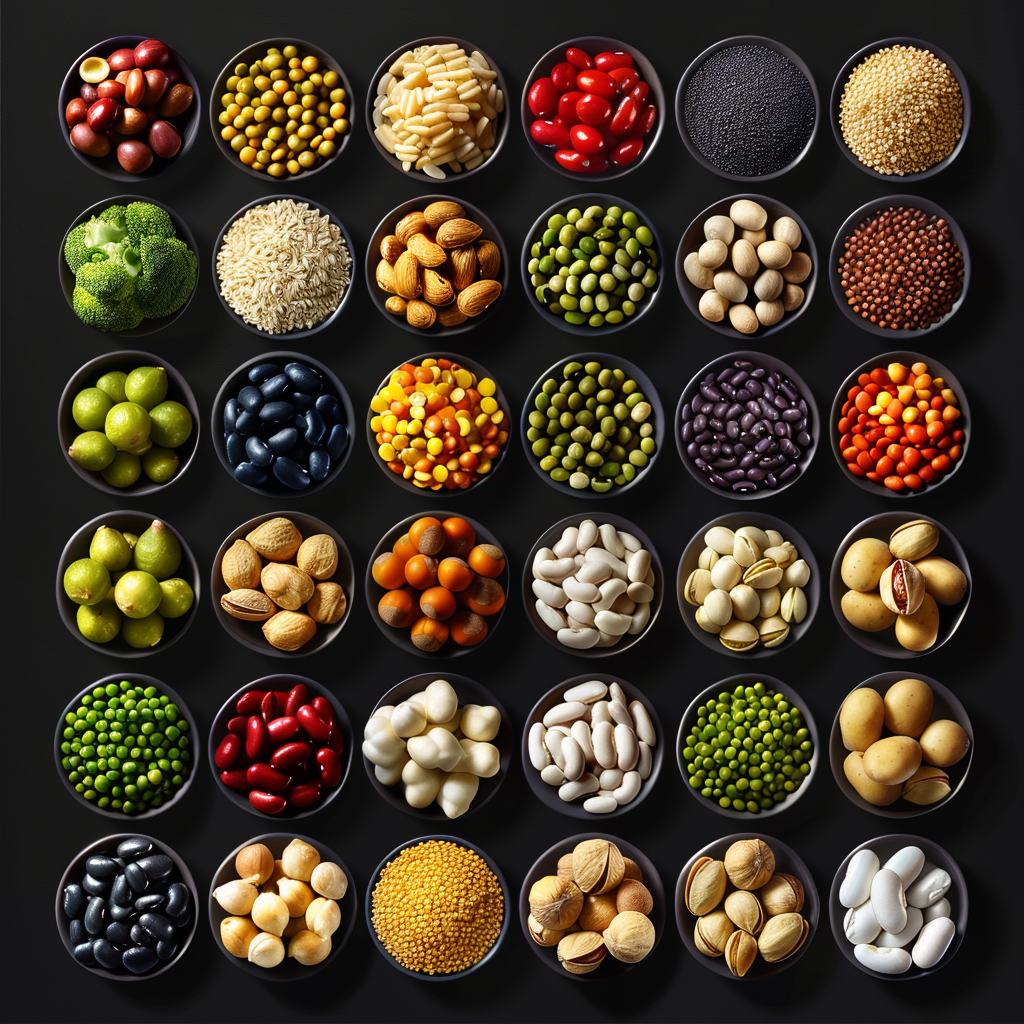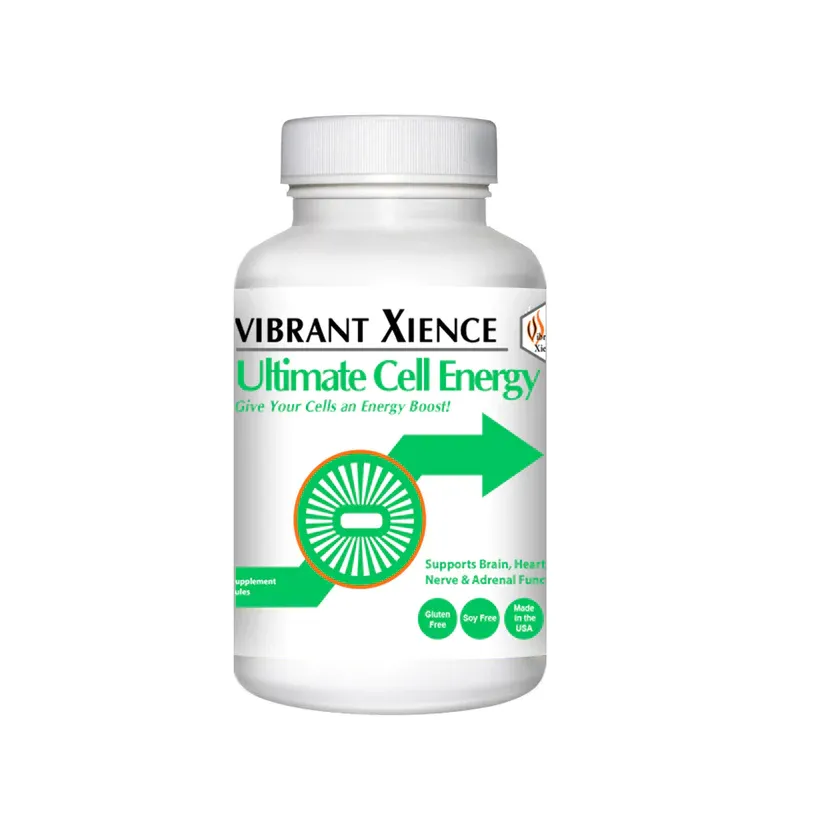Confused by the buzz around lectins and weight loss? You're not alone. Let's check into these proteins found in plants, separating fact from fad and exploring their potential impact on your health and weight management goals.
Lectins: The Good, the Bad, and the Beans
Lectins are naturally occurring proteins found in a wide variety of plant-based foods, including legumes (beans, lentils, peas), grains (wheat, rice, corn), nuts, seeds, vegetables (potatoes, tomatoes, eggplants), and even some fruits.
While some popular diet trends demonize lectins as weight loss saboteurs, the science surrounding their true impact is still evolving.
One of the main concerns surrounding lectins is their potential to interfere with nutrient absorption. Lectins bind to carbohydrate molecules, and in high concentrations, this binding can hinder the absorption of certain nutrients from the foods we eat.
This could theoretically impact weight management as proper nutrient absorption is crucial for maintaining a healthy metabolism and regulating hormones that influence hunger and satiety.

However, it's important to remember that lectin-rich foods often come packed with valuable nutrients themselves. Beans, for example, are a powerhouse of protein, fiber, vitamins, and minerals, all of which play a role in healthy weight management.
They can promote feelings of fullness, support gut health, and contribute to a balanced diet.
Here's the key takeaway:
the potential downsides of lectins can be significantly minimized through proper food preparation methods.
Soaking, sprouting, and fermenting lectin-containing foods can significantly reduce lectin content, making them more digestible and ensuring you reap their nutritional benefits.
Cooking to the Rescue: Disarming Lectins
The good news is that lectins are quite susceptible to heat. Cooking methods like boiling, baking, and roasting can effectively deactivate lectins, making them less harmful and improving the overall digestibility of lectin-rich foods.
Here's a closer look at how specific preparation methods can disarm lectins:
| Method | Description |
|---|---|
| Soaking | - Effective for beans and lentils - Soak overnight in water - Reduces lectin content by up to 80% - Discard soaking water before cooking |
| Sprouting | - Allow legumes, grains, and nuts to germinate - Reduces lectins - Increases bioavailability of certain nutrients - Easier to digest |
| Fermentation | - Ferment beans and vegetables with beneficial bacteria - Breaks down lectins - Enhances nutritional profile - Used for kimchi and sauerkraut |
By incorporating these techniques into your food preparation routine, you can enjoy the benefits of lectin-rich foods without worrying about their potential downsides.
Understanding Lectins and Their Role in the Diet
Lectins are proteins found in a variety of foods. They are known for binding to carbohydrate molecules and have been both criticized and praised within nutritional science.
Defining Lectins and Their Sources
Lectins are naturally occurring proteins that can be found in many foods. Common sources include beans, grains, potatoes, nuts, tomatoes, peanuts, lentils, and other legumes.
Beans and legumes are particularly rich in lectins. For instance, consuming raw or undercooked kidney beans can expose you to high levels of phytohemagglutinin, a specific type of lectin. Grains like wheat and rice, as well as seeds and nuts, also contain lectins.
The Interaction of Lectins with Nutrients
Lectins interact with nutrients by binding to the carbohydrates in the foods we eat. This binding can interfere with the absorption of some nutrients, potentially affecting weight management and overall health.
Some lectin-rich foods are beneficial, as they are also high in vitamins, minerals, fiber, protein, and healthy fats. For example, legumes not only contain lectins but are also excellent sources of protein and fiber, contributing to a balanced diet. The challenge lies in consuming these foods properly to minimize lectin-related issues.
Heat and Cooking: Mitigating Lectin Content

Cooking methods significantly affect lectin content. Heat can deactivate lectins, reducing their potential negative impact on health. For example, thoroughly cooking beans can reduce the activity of harmful lectins to undetectable levels.
Boiling and soaking are common methods to decrease lectin levels. For instance, soaking beans before cooking and then boiling them can enhance their digestibility and nutritional benefits. By applying these techniques, one can enjoy the advantages of lectin-rich foods without experiencing adverse effects.
The Health Implications of Lectins

Lectins, found in various foods, have diverse effects on health. Their potential benefits and adverse effects make them a subject of considerable debate.
Potential Benefits of Lectins in Moderation
Lectins have notable health benefits when consumed in moderation. They may help reduce type 2 diabetes and obesity by slowing carbohydrate absorption and improving blood sugar and insulin levels. This process could aid weight management and overall metabolic health.
These proteins also exhibit antimicrobial properties. They can bind to the surface of pathogens, causing structural damage and preventing infection. Some studies suggest their potential in combating inflammation and supporting the immune system.
Additionally, their binding properties may protect against certain types of cancer and heart disease by interfering with harmful cell signals and reducing inflammatory responses.
Adverse Effects and Lectin Sensitivity
Despite their benefits, lectins can trigger adverse health effects, especially in sensitive individuals. One common issue is digestive problems, as high concentrations of lectins can cause gastrointestinal damage. Symptoms include diarrhea, nausea, and vomiting, potentially leading to more serious conditions like irritable bowel syndrome.

Ultimate Cell Energy
Ultimate Cell Energy contains a powerful blend of nutrients and antioxidants to support your brain's energy production and protect against harmful free radicals.
Lectins can also bind to cells in the gut, which might lead to inflammation and compromise nutrient absorption. This reaction can result in nutrient deficiencies and further exacerbate digestive issues.
Some people may experience allergic reactions to lectins, manifesting as skin rashes or respiratory issues. Additionally, excessive intake has been linked to brain fog, indicating a potential impact on cognitive function.
Moderate consumption of lectins in foods like beans and grains is generally safe. However, those with existing gut issues or sensitivities should exercise caution and consider reducing their lectin intake.
The Debate Around Lectins and Weight Management
The connection between lectins and weight management remains controversial with mixed scientific evidence and varied expert opinions. While some advocate for lectin-free diets, others question their efficacy and sustainability.
Evidence Linking Lectins to Weight Loss and Gain
Animal studies suggest that lectins may influence weight by modulating hormones like GLP-1, which affects appetite. This could potentially lead to changes in fat metabolism.

Youthful Slim
Tired of the endless fluctuations in body composition? Our all-natural formula is designed to support your journey toward achieving a healthy body composition by helping you feel satisfied, controlling cravings, and maintaining balanced energy levels.
High-lectin foods, such as beans and grains, are low in calories but high in nutrients, which can promote a feeling of fullness. However, excessive consumption of raw lectins might disrupt digestion and nutrient absorption, potentially impacting weight.
Lectin-Free Diets: Fad or Future of Weight Loss?
Steven Gundry, a cardiologist and author of "The Plant Paradox," claims that eliminating lectins can reduce inflammation and improve digestion, leading to weight loss. He argues that this approach can help manage conditions like type 2 diabetes and obesity.
Despite these claims, many registered dietitians warn that the evidence is not robust. Eliminating entire food groups can lead to nutrient deficiencies and may not be sustainable long-term.
Expert Opinions and Scientific Evidence
Experts are divided on the impact of lectins. Some researchers find potential benefits in lectin-free diets for specific individuals with digestive sensitivities. However, others believe these diets are unnecessary for the general population.
Scientific evidence remains limited and inconsistent. More research is needed to determine the long-term effects of lectin avoidance on weight loss and overall health. Until then, it’s essential to approach lectin-free diets with caution and seek guidance from healthcare professionals.
Making Informed Choices About Lectins in Your Diet
Many foods we eat daily, like legumes and whole grains, contain lectins. Deciding how to incorporate these foods into your diet can significantly impact your health and weight management.
How to Approach Lectin Consumption
Consuming lectins isn't inherently harmful, but it's essential to prepare foods correctly. Cooking methods like soaking, sprouting, and fermenting can reduce lectins in foods like kidney beans and chickpeas, making them safer to eat.
Nightshade vegetables such as potatoes, tomatoes, and eggplants also contain lectins. While some people report sensitivity, these vegetables are nutritious parts of many diets. Including a variety of other vegetables such as broccoli and avocado can help diversify your nutrient intake.
Minimizing processed foods and focusing on whole, unprocessed foods is crucial. Unrefined grains, nuts, and seeds often need specific preparation to limit lectin levels. Options like quinoa, millet, and properly cooked brown rice can be more beneficial in a balanced diet.






